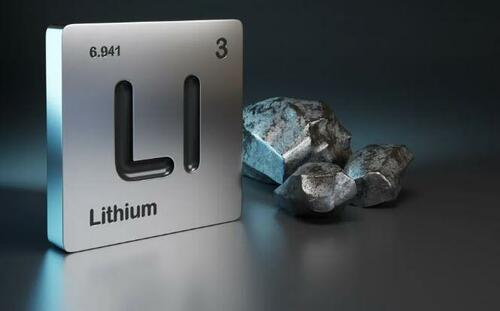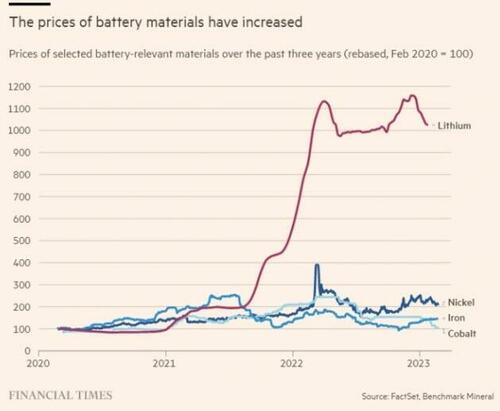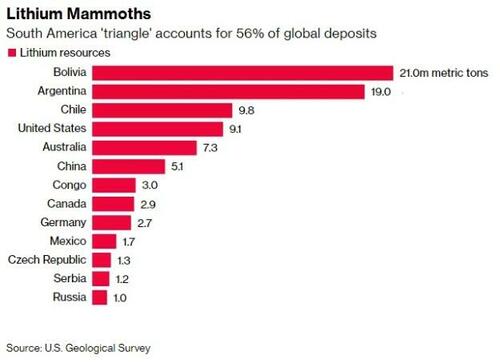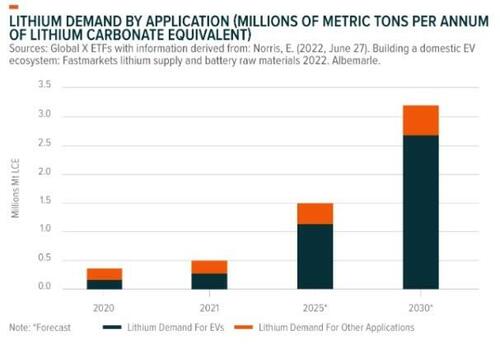
The so-called lithium triangle Argentina, Chile, and Bolivia account for more than half of global lithium resources, and both Brazil and Argentina have auto-making experience. That could be the basis of a regional electro-mobility platform, she said.
There’s a big push among many resource-producing nations to move down the supply chain, taking advantage of the near- and re-shoring craze.
Rather than merely supplying the raw materials upstream in the supply chain, for example, the resource producers are looking to move into higher-value-added activities, such as manufacturing batteries, and eventually, the EVs that pack those lithium batteries.
Bloomberg reports that the Chinese carmaker Chery Inc. is looking at building a $400 million EV and battery plant in Argentina to secure Andean lithium supplies, which reflects a global trend by resource-rich nations to move away from just being just merely suppliers of the commodities, the inputs into higher valued added downstream products.
On average, EV lithium-ion battery packs contain about 9kg of lithium, one thousand times more than most consumer electronics.
Lithium miners have been unable to scale supply to the rapidly growing demand as the electric vehicle market evolves.
Adding new capacity online can take 3–5 years or more.
The supply deficit has resulted in a huge spike in the price of lithium.
Annual lithium demand is expected to reach roughly 3.0 million metric tons of lithium carbonate by 2030, of which EVs could account for over 80 percent of the total demand.
The U.S. Geological Survey (USGS), estimates Mother Earth holds 88 million tonnes of lithium, of which one-quarter is economically viable to mine, known as “reserves.”
Total reserves of lithium should increase as technology improves. The USGS estimated only 13 million tonnes just a decade ago.
A rough approximation by Popular Mechanics estimates that 22 million tonnes of lithium could produce 2.8 billion EVs
We smell big supply deficits of lithium for many years to come but innovation, as always, offers us hope.
Watch this space.
The so-called lithium triangle Argentina, Chile, and Bolivia account for more than half of global lithium resources, and both Brazil and Argentina have auto-making experience. That could be the basis of a regional electro-mobility platform, she said.
There’s a big push among many resource-producing nations to move down the supply chain, taking advantage of the near- and re-shoring craze.
Rather than merely supplying the raw materials upstream in the supply chain, for example, the resource producers are looking to move into higher-value-added activities, such as manufacturing batteries, and eventually, the EVs that pack those lithium batteries.
Bloomberg reports that the Chinese carmaker Chery Inc. is looking at building a $400 million EV and battery plant in Argentina to secure Andean lithium supplies, which reflects a global trend by resource-rich nations to move away from just being just merely suppliers of the commodities, the inputs into higher valued added downstream products.
On average, EV lithium-ion battery packs contain about 9kg of lithium, one thousand times more than most consumer electronics.
Lithium miners have been unable to scale supply to the rapidly growing demand as the electric vehicle market evolves.
Adding new capacity online can take 3–5 years or more.
The supply deficit has resulted in a huge spike in the price of lithium.
Annual lithium demand is expected to reach roughly 3.0 million metric tons of lithium carbonate by 2030, of which EVs could account for over 80 percent of the total demand.
The U.S. Geological Survey (USGS), estimates Mother Earth holds 88 million tonnes of lithium, of which one-quarter is economically viable to mine, known as “reserves.”
Total reserves of lithium should increase as technology improves. The USGS estimated only 13 million tonnes just a decade ago.
A rough approximation by Popular Mechanics estimates that 22 million tonnes of lithium could produce 2.8 billion EVs
We smell big supply deficits of lithium for many years to come but innovation, as always, offers us hope.
Watch this space.
Loading…










